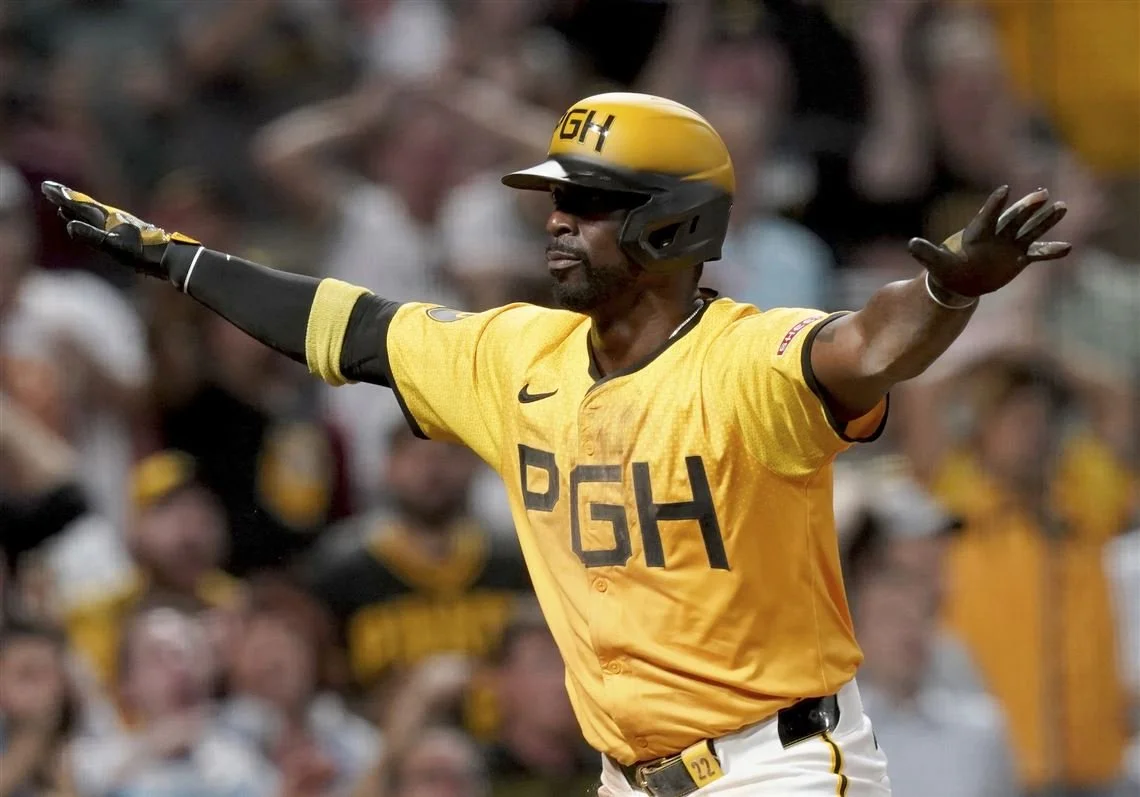Although I’m a proud New Yorker and an even prouder Met fan, I also root for the Pittsburgh Pirates (when they aren’t playing the Mets). This isn’t hard to explain; it begins with the fact that, having immigrant grandparents with Brooklyn roots, I instinctually support underdogs on every field of play – other than Citi Field.
Why else do I like the Pirates? Their gorgeous-looking PNC Park: someday I’d like to see it in person. Their enviably lovely and livable city – I enjoyed it last time I was there, which by sheer happenstance was some fifty years ago. Ralph Kiner, Roberto Clemente, Willie Stargell, and Andrew McCutcheon, who require no embellishment. And I admired the way the scrappy Bucs played in the recent series, when the Mets struggled to take two of the three games.
Plus – and it’s a big plus – they aren’t the Phillies.
All of that would be enough to make me a passive Pittsburgh Pirates fan. But a broader explanation goes beyond baseball, echoing across the universe like the crack of a bat. It begins with the lack of parity among rich and poor teams. The equilibrating mechanisms – salary caps, luxury taxes, higher draft picks for lower-ranking teams – don’t go nearly far enough to ensure even roughly competitive balance in the Major Leagues.
This year, according to Spotrac, team payrolls range from the Los Angeles Dodgers ($332 million) to the Miami Marlins at $67 million, less than one-fifth of the Dodgers’. The Pirates rank 27th among the thirty teams at just below $90 million.
Of course, there are other ways to measure teams’ competitive strength, such as the standings, or the number of high-ranking prospects. But one has only to look at the Brooklyn-jilting Dodgers (or the Mets, or the team I don’t care to name in the Bronx) to see that financial disparities make a difference on the field. In fact, as of last week, eight of the ten richest teams had winning records, while seven of the ten poorest had losing records.
A more competitive playing field across the major leagues would be a rising tide that lifted all boats. More exciting games, more excited fans, more intense rivalries, a more vibrant sport. Other professional sports have done this – at least, they’ve done a better job of it than baseball.
But there’s a larger lesson here. Market orthodoxy, without rules to ensure a level playing field, may seem like a conservative ideal, but it doesn’t maximize prosperity, let alone equity. And systems – whether the economy, the human body, or baseball – don’t like imbalance; they like equilibrium.
Laws and regulations that promote competition and equal opportunity don’t just allow more entities to succeed; they enable the whole system to function at a higher level for everyone. Inequality is inefficient. Baseball owners don’t get this about the game, and conservatives don’t get it about capitalism. The pursuit of narrow self-interest is in fact self-defeating.
I need hardly add that a political system that allows the wealthy to buy power through lobbyists and contributions (like a baseball system comprising a cartel of owners, few of whom can afford elite pitchers and sluggers) is inherently corrupt and inimical to the public interest. And I won’t even mention tariffs or the world economy. The parity principle applies there as much as it does to, say, the Pirates trading with the Dodgers.
To be sure, we Met fans are struggling, sort of, to adapt to the new reality that the Amazin’s are, um, overdogs. It has its benefits, despite being at variance with our core identities as Met fans. But we haven’t abandoned underdogs.
I don’t claim that greater equality is the Archimedean Point of all truth and justice. But I see the systemic need for it at many levels, beginning with the most important one: baseball. So, Let’s Go Bucs!

